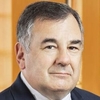Welcome to BARBRI, the trusted global leader in legal education. Continue to access the same expert-led Strafford CLE and CPE webinars you know and value. Plus, explore professional skills courses and more.
About the Course
Introduction
This CLE course will explore current developments regarding the use and effect on creditor options and payouts of companies bringing on new "bankruptcy directors" as they hurdle toward Chapter 11, the impact of bankruptcy or "independent" directors on the integrity of the bankruptcy system, and what creditors and creditors' committees can do if they claim directors are hijacking the process for the benefit of equity holders. Independent directors will need to best position themselves to refute such accusations and efforts.
Description
A significant source of assets to pay unsecured creditors in Chapter 11 could be the recovery from shareholders or other insiders for alleged self-dealing or violation of fiduciary duties. Creditors, shareholders, and secured lenders may disagree over the value and merits of this litigation, which frequently alleges insider self-dealing that contributed to the bankruptcy filing.
According to unsecured creditor constituencies, to thwart recovery efforts and suppress creditor voices, shareholders have begun adding independent bankruptcy directors before or shortly after filing Chapter 11 and then ceding to their control actions against shareholders. Proponents argue independent directors bring the efficiency and speed necessary to preserve the business.
Creditors need to know what tools are available to them to resist the actions of bankruptcy directors to protect those that violate duties to the debtor. Independent directors need to know how to properly position themselves to defend against such accusations.
Listen as this panel of experienced bankruptcy counsel discusses the phenomenon of bankruptcy directors and what strategies are available to creditors to increase their recovery.
Presented By

Mr. Handler’s practice focuses on representing lenders and bondholders across the capital structure and companies in all aspects of workout, restructuring, special situation financing matters and distressed M&A transactions. He also has significant experience in connection with investment manager and broker-dealer liquidations and wind-downs, private credit restructurings and insolvency-related structured finance matters. Mr. Handler is at the forefront of intercreditor litigation and related issues, having led significant contested matters concerning the protection of minority lender rights in litigation in New York Supreme Court.

Mr. Selbst has more than 30 years of experience representing debtors, creditors, official committees, distressed investors and asset purchasers in bankruptcies and out-of-court restructurings. He is a frequent lecturer on bankruptcy and restructuring topics and has published articles and book chapters on bankruptcy-related topics. He has been frequently quoted in newspaper articles on insolvency related topics and has appeared on CNBC.

Mr. Smith focuses his practice on complex corporate restructuring and creditors' rights, including in court Chapter 11 cases and out-of-court workouts. He represents official and ad-hoc creditor committees, secured lenders, administrative agents, and other parties-in-interest in restructuring matters. He is experienced in analysis of true sale, non-consolidation and bankruptcy remoteness principles.
-
This 90-minute webinar is eligible in most states for 1.5 CLE credits.
-
Live Online
On Demand
Date + Time
- event
Thursday, January 22, 2026
- schedule
1:00 p.m. ET./10:00 a.m. PT
I. The emergence of "independent" directors
A. Before filing
B. After filing
II. Arguments in favor of independent directors
III. Conflicts of interest
IV. Creditor and committee responses
V. Recent cases
The panel will review these and other critical issues:
- What makes a director truly "independent"?
- What showing should bankruptcy courts require before deferring to the debtor board's decisions on investigations and avoidance actions?
- How can creditors and committees enhance recovery for creditors?
Unlimited access to premium CLE courses:
- Annual access
- Available live and on-demand
- Best for attorneys and legal professionals
Unlimited access to premium CPE courses.:
- Annual access
- Available live and on-demand
- Best for CPAs and tax professionals
Unlimited access to premium CLE, CPE, Professional Skills and Practice-Ready courses.:
- Annual access
- Available live and on-demand
- Best for legal, accounting, and tax professionals
Unlimited access to Professional Skills and Practice-Ready courses:
- Annual access
- Available on-demand
- Best for new attorneys
Related Courses
Recommended Resources

Transforming CLE from a Requirement to a Career Advantage
- Learning & Development
- Career Advancement
- Talent Development

Beyond Law School: Tackling the Realities of Modern Legal Practice
- Learning & Development
- Business & Professional Skills
- Career Advancement


